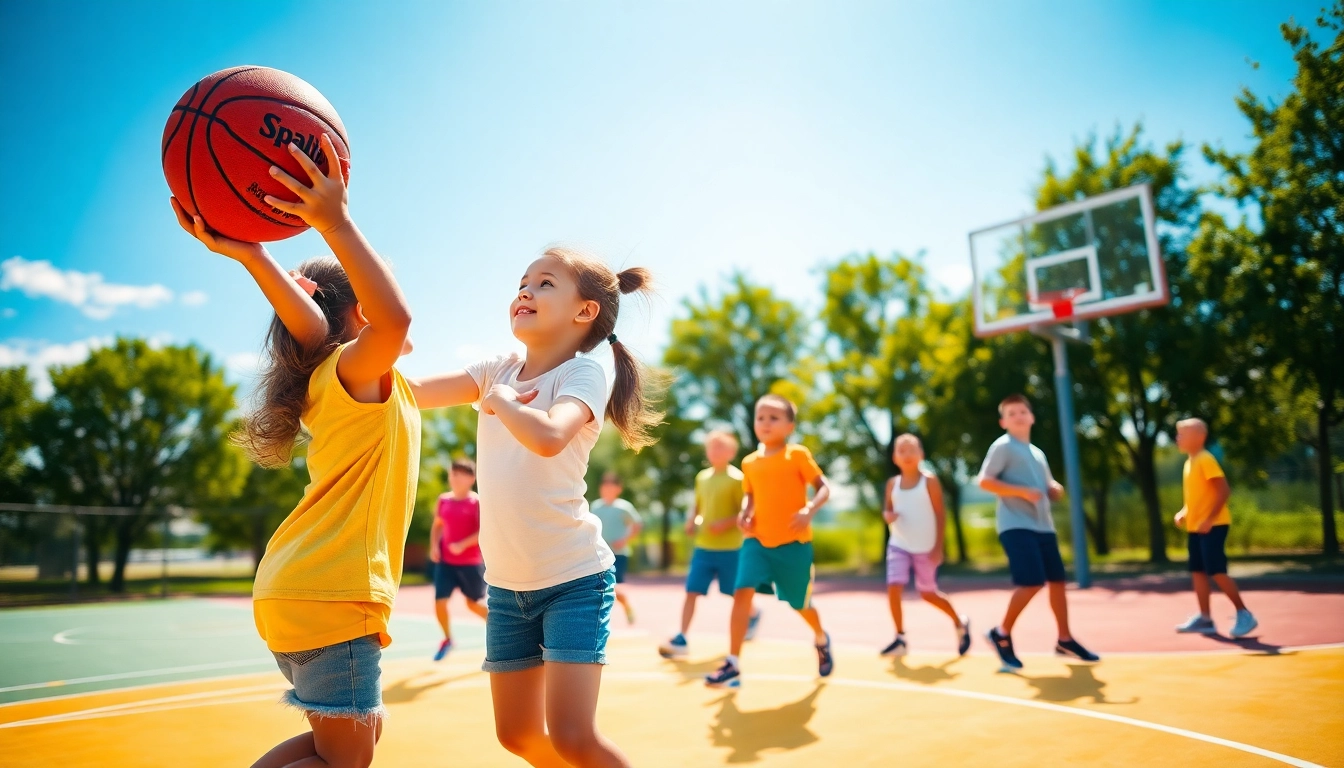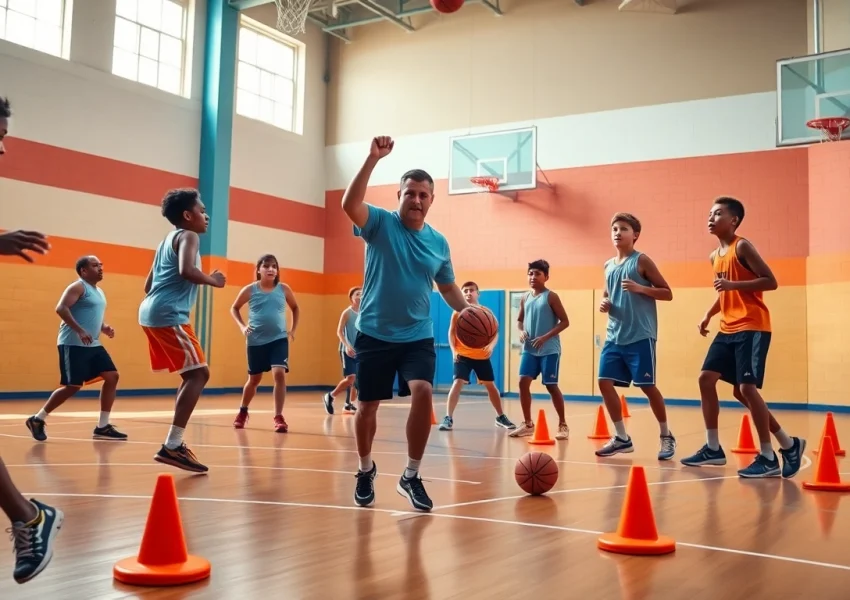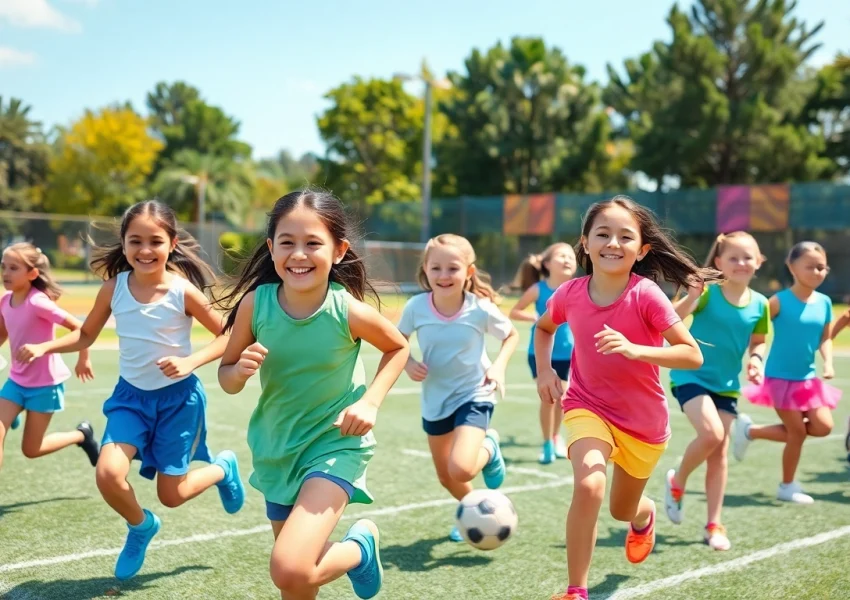Introduction to Young Basketball Enthusiasts
Basketball is more than just a sport; it’s a dynamic activity that shapes youth character, teamwork, and personal growth. Engaging young basketball enthusiasts in the fundamentals of the game can set the foundation for lifelong skills both on and off the court. Whether they aspire to dunk like their idols or simply want to enjoy the game recreationally, the formative years provide pivotal experiences that impact their athletic journey.
The Importance of Early Engagement in Basketball
Introducing children to basketball at an early age fosters a lifelong love for the game. Engaging young players helps develop not only their physical abilities but also their social skills. Programs specifically designed for young players provide a supportive environment where they can learn the game’s fundamentals while building friendships. Early involvement enables children to develop coordination, agility, and an understanding of teamwork, which are essential for both sports and life.
Benefits of Basketball for Children
The benefits of playing basketball extend far beyond physical fitness. Here are some key advantages:
- Physical Health: Regular physical activity helps children maintain a healthy weight, improves cardiovascular health, and strengthens bones and muscles.
- Social Skills: Team play fosters communication, cooperation, and camaraderie, essential components of social development.
- Discipline and Respect: Organizing practice and learning game rules encourage discipline and a respect for authority figures, such as coaches and officials.
- Confidence Building: Mastering new skills and receiving positive reinforcement can significantly boost a child’s self-esteem.
Choosing the Right Introduction Program
Selecting the right program is vital for nurturing young basketball enthusiasts. Parents should consider various factors such as the program’s philosophy, coaching staff qualifications, and structure. Programs with a focus on fundamentals and positive reinforcement are ideal for maintaining children’s interest and fostering skill development. Look for organizations that prioritize inclusion and have a good reputation within the community, as this can significantly enhance the experience for young players.
Building Fundamental Skills for Young Players
The foundation of any successful basketball player starts with mastering fundamental skills. Young players should be encouraged to practice regularly to solidify these skills and gain confidence in their abilities.
Dribbling Techniques and Exercises
Dribbling is a critical skill in basketball, enabling players to advance the ball and evade defenders. Here are some effective techniques and exercises:
- The Stationary Dribble: Encourage players to practice dribbling in place, focusing on control and ball handling.
- Dribble Relay Races: Set up cone obstacles to create fun relay races that emphasize various dribbling techniques.
- Using Both Hands: Players should practice dribbling with both their dominant and non-dominant hands to become well-rounded.
Passing and Shooting Basics
Solid passing and shooting techniques are essential for success in basketball. Understanding the different types of passes—such as chest pass, bounce pass, and overhead pass—allows players to make smart plays during games. To enhance shooting skills, focus on form and repetition. Having players practice:
- Form Shooting: Players should shoot close to the basket and focus on their shooting mechanics.
- Spot Shooting: Incorporate shots from various positions on the court to build familiarity during live gameplay.
Defensive Skills for Young Basketball Enthusiasts
Defense is just as important as offense in basketball. Teaching young players to be effective defenders involves cultivating good positioning, footwork, and understanding how to anticipate opponents’ moves. Here are crucial defensive techniques:
- Stance and Positioning: Emphasize the importance of maintaining a low, balanced stance to stay agile.
- Closeout Drills: Teach players how to close out on shooters effectively, challenging shots while maintaining defensive pressure.
Finding Community and Support
Joining a community that shares a passion for basketball can greatly enhance a young player’s experience and development. Encouragement from peers, coaches, and family members can motivate players and create lasting friendships.
Local Youth Basketball Leagues
Participating in local youth basketball leagues provides players with the opportunity to apply their skills in a competitive setting. These leagues help instill a sense of belonging and a commitment to the game. Parents can find leagues through schools, community centers, or local sports organizations. Ensure that the league promotes sportsmanship and personal development, prioritizing fun over competition.
Engaging Parents and Guardians
Parental involvement plays a significant role in a young athlete’s journey. Encouraging parents to attend practices and games demonstrates support and builds morale. Additionally, they may contribute by volunteering their time, whether it’s coaching, organizing events, or assisting with logistics.
Online Resources and Forums
In today’s digital age, there are myriad resources available online for young basketball enthusiasts and their families. Websites, forums, and social media platforms dedicated to youth basketball provide valuable tips, training aids, and communities for discussion. These platforms can foster greater connections among families and players, allowing them to share experiences and advice.
Health and Wellness Considerations
Maintaining a balance between athletics and health is essential for young players. Understanding nutritional needs, injury prevention, and mental health support are critical components of an athlete’s development.
Nutritional Advice for Young Athletes
A well-balanced diet is crucial for young athletes to fuel their bodies. Nutrient-dense foods provide the energy needed for practice and competition. Recommendations include:
- Carbohydrates: Whole grains, fruits, and vegetables should make up the majority of their diet, providing sustained energy.
- Proteins: Lean proteins such as chicken, fish, beans, and nuts help in muscle repair and growth.
- Hydration: Encourage children to drink water consistently, especially before, during, and after physical activity.
Injury Prevention Tips
Young athletes are susceptible to injuries, but many can be prevented through proper training and awareness. Teach players the importance of warming up before practices and games, as well as cooling down afterward. Here are a few preventive measures:
- Strength Training: Introduce age-appropriate strength training exercises to help build muscles that support joints and reduce injury risks.
- Rest Days: Encourage regular rest to allow the body to recuperate and prevent overuse injuries.
Importance of Mental Health in Sports
Mental health is just as important as physical health in sports. Young athletes must learn to cope with pressure, competition anxiety, and the highs and lows of performance. Coaches and parents can help by:
- Encouraging open communication about feelings and stress related to sports
- Promoting a healthy perspective on competition, emphasizing personal growth over wins and losses
Inspiring Young Basketball Enthusiasts
Inspiration is a powerful tool in shaping young players’ attitudes and aspirations. By sharing success stories and highlighting role models, inspiration becomes a productive force driving young athletes toward achieving their goals.
Success Stories from Young Players
Highlighting stories of young players who have achieved significant milestones can motivate others to pursue their dreams. Showcase local players who have overcome challenges or made remarkable progress. Whether it’s earning a spot on a school team, leading their league in scoring, or simply improving their skills, these stories resonate with aspiring athletes.
Role Models in the Basketball Community
Role models play a significant part in children’s lives. Whether it’s professional players, coaches, or community figures, understanding their journey and challenges provides a blueprint for young enthusiasts. Encourage youth to follow their favorite players on social media or engage in community events with local teams. Learning about their lives, motivations, and the hard work behind their success can ignite a passion for the game.
Continuing the Passion Beyond Youth Sports
Encouraging young athletes to remain active in basketball, even after youth sports, is essential. Many skills learned can translate into lifelong activities. Suggest pathways such as joining community leagues, engaging in recreational play, or even coaching younger players. Keeping the passion alive ensures that basketball remains a positive influence throughout their lives.






